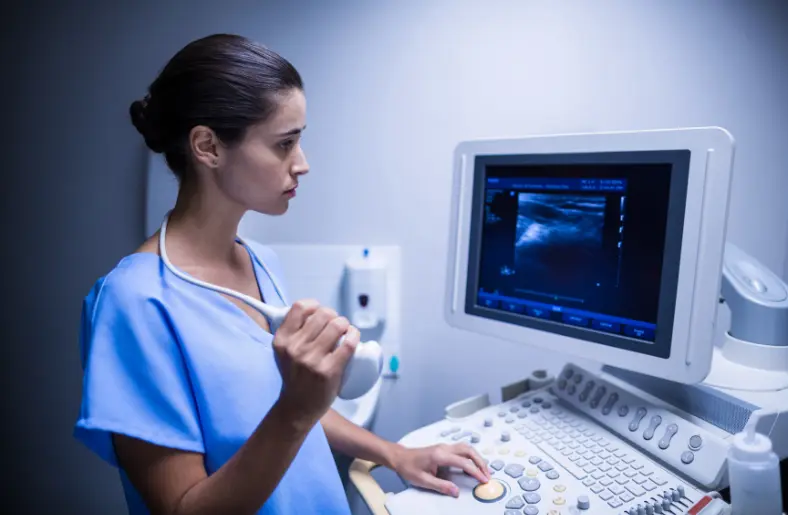Introduction
A health science degree opens many career doors, but few know it’s a direct path to sonography. In fact, ultrasound careers are booming, with 10% growth by 2031. Thanks to experts like Healthsciencesforum Heather Arranie: Health Science to Ultrasound, transitioning is simpler than you think. While health science covers anatomy and patient care, sonography adds technical imaging skills. However, your medical foundation gives you a major advantage. Now, specialized programs fast-track your shift into this high-paying field. According to industry data, sonographers earn
57K–
57K–101K yearly. So, if you love healthcare and technology, this is your perfect match. Let’s explore how Healthsciencesforum Heather Arranie guides your next career move.”
Why Transition from Health Science to Ultrasound?
“Switching from health science to ultrasound isn’t just smart—it’s strategic. First, demand is soaring, with 10% job growth by 2031. Meanwhile, other healthcare roles grow slower, making sonography stand out. Plus, salaries range from
57K for starters to
57K for starters to 101K for experts. Therefore, your earning potential rises fast with experience. On top of that, health science grads already know anatomy and patient care. As a result, you’ll learn ultrasound tech faster than others. In short, your degree isn’t just relevant—it’s a head start.”
“Moreover, hospitals and clinics need skilled sonographers now. For instance, 60% of jobs are in hospitals, offering stability. Beyond that, specialties like cardiac imaging pay 12% more. So, your health science background opens higher-paying paths. Ultimately, this career blends science, tech, and patient care perfectly. Thus, if you want growth and impact, ultrasound is the answer.”
Step 1: Assess Your Health Science Degree’s Strengths
“Before jumping into sonography, evaluate your health science strengths. Specifically, your anatomy and physiology knowledge directly applies to ultrasound imaging. Additionally, medical terminology skills help you communicate with doctors seamlessly. These are your foundation, not simply the essentials.
Additionally, you already possess important transferable abilities. For example, patient interaction experience ensures better bedside manner during scans. Similarly, data analysis abilities help interpret ultrasound results accurately. Even healthcare tech familiarity gives you an equipment advantage. But don’t ignore the gaps that need to be filled.
Most importantly, ultrasound physics requires focused study. Likewise, hands-on scanning practice is completely new but learnable. Luckily, you’ll advance more quickly because of your prior knowledge. In essence, you’re building a sturdy foundation rather than beginning from scratch. Now, let’s turn these strengths into sonography success.”
Step 2: Select Your Course of Study in Sonography
“After evaluating your strengths, let’s look at your educational possibilities. First, graduates of health science certificate programs complete their curricula in as little as 12 to 18 months. Meanwhile, bachelor’s degrees work better if you’re starting fresh or want advancement. Either way, always verify CAAHEP accreditation first. Additionally, prioritize programs offering 1,000+ clinical hours since hands-on experience matters most. However, don’t forget to compare costs between options. Generally, certificates cost less but may limit career growth. Conversely, degrees open more doors but require greater investment. Therefore, align your choice with your career goals and budget. Remember, proper training makes certification exams easier later. Ultimately, both paths can lead to successful sonography careers when chosen wisely.”
Step 3: Get Certified (ARDMS & Specializations)
“The next important step after finishing your school is certification. The ARDMS exam specifically assesses physics and specialized modules such as OB/GYN and abdominal. Additionally, vascular certification opens more job opportunities. Therefore, plan your exam strategy carefully.
Moreover, specializing boosts your earning potential significantly. For instance, cardiac sonographers earn 12% above average. Similarly, pediatric and musculoskeletal specialties offer higher pay too. However, remember Heather Arranie’s advice: pass your SPI exam first. As a result, early in your career, you will be more employable. In the end, credentials prove your abilities and raise your worth in the medical field.”
Step 4: Land Your First Sonography Job
“It’s time to get your ideal career now that you’re certified. First, focus on hospitals, where 60% of sonography jobs exist. Additionally, clinics and mobile imaging services offer great opportunities too. Therefore, cast a wide net when applying.
Next, strengthen your resume strategically. Specifically, highlight your clinical hours—they prove hands-on experience. Moreover, include health science projects to showcase transferable skills. However, tailor each application to the job description.
Finally, prepare for interviews thoroughly. For example, practice answering, ‘How do you handle anxious patients?’ Similarly, research common sonography scenarios. Consequently, you’ll feel confident and stand out. In the end, success comes from preparation and perseverance.”
Success Stories & Pro Tips
“Real success stories prove this career change works. For example, one health science grad transitioned in just 18 months. Similarly, Healthsciencesforum Heather Arranie: Health Science to Ultrasoun credits networking during rotations for landing her first job. Therefore, build connections early in clinicals.
However, avoid common pitfalls that slow progress. Specifically, never skip program accreditation—it’s crucial for certification. Additionally, don’t neglect soft skills like patient communication. Otherwise, even top technical skills won’t shine. In the end, to succeed, strike a balance between relationships and knowledge.”
Conclusion
“In summary, your health science degree gives you a strong head start. Moreover, sonography offers both stability and daily purpose. Therefore, transitioning is smarter than starting from scratch. Now, imagine using ultrasound skills to improve patients’ lives daily. Finally, remember that accredited programs and networking pave the way. So, are you ready to scan your future? Take the first step now by leaving your questions below!”






Ищете проверенную помощь в уборке квартиры в Санкт-Петербурге? Наша команда профессионалов дает гарантию чистоту и порядок в вашем доме! Мы применяем только безопасные и действенные средства, чтобы вы могли наслаждаться свежестью без хлопот. Нажимайте https://klining-uslugi24.ru – Генеральная уборка квартир СПб Не прозевайте шанс сделать свою жизнь проще и удобнее.